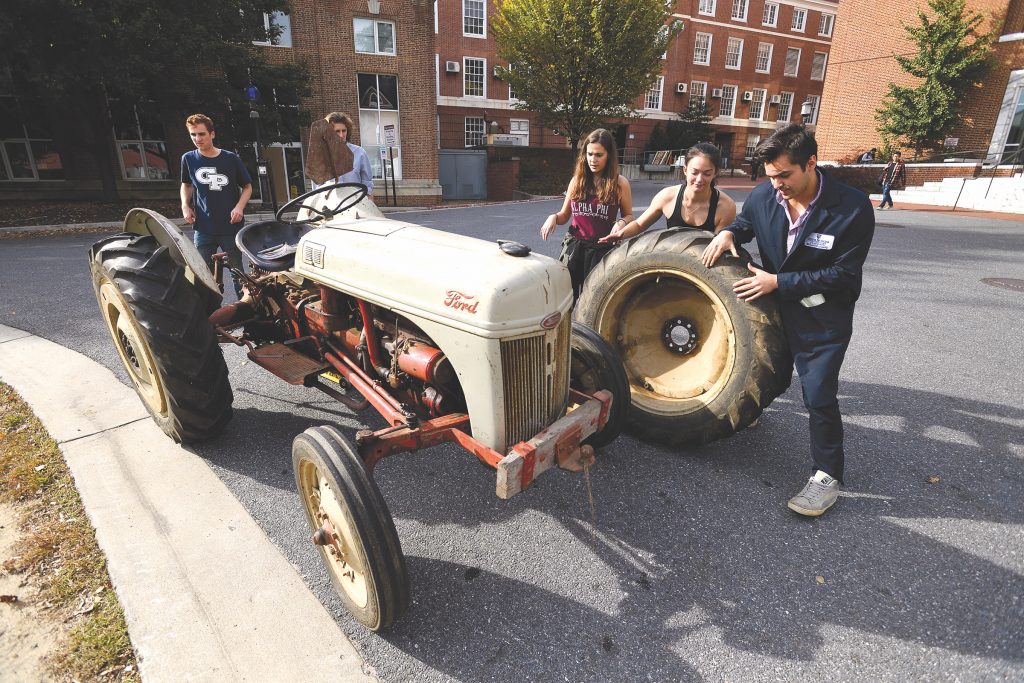
Heads turned, and a few students stopped and stared as a farm tractor growled its way up the campus roadway, then sputtered to a stop in front of Merrick Barn. “Um, now what?” asked driver Tatiana Pereira, laughing a little as she stepped on the clutch and tried, unsuccessfully, to turn over the engine of the 1947 Ford tractor. Four classmates, who had trotted alongside the vintage vehicle on its short journey, began to strategize and tinker. Ten minutes later, the tractor rumbled back to a parking spot behind the building.
It was all in a day’s work for Pereira, a second-year biomedical engineering major, and her classmates in “tractor class,” newly offered last fall at the Whiting School. (Officially, the course is called Reverse Engineering and Diagnostics, but no one but the registrar calls it that.)
The brainchild of Stephen Belkoff, who teaches in the Department of Mechanical Engineering, the three-credit class has students take apart and then reassemble two 72-year-old Ford N-series tractors and get the motors humming again.
Because the donated machines are so old, Belkoff’s students must rely on their developing engineering skills to ascertain which parts are missing, which ones still work, and what needs repair. Belkoff also routinely sabotages the tractors’ systems, challenging the students to figure out and fix whatever is wrong using logic and fundamental principles of physics and thermodynamics.
The old tractors are the perfect teaching tool, he says—they were so well-designed that many are still working. They also provide good examples of hydraulic, fuel, drivetrain, ignition, and steering systems: systems most present-day students don’t have much, if any, experience with.
“Years ago, most students would arrive in engineering school with some experience mucking around with car engines or repairing their bikes or the family lawn mower,” Belkoff says. “That’s not true anymore. You don’t need to know how to repair a lawn mower to be a good mechanical engineer, of course, but I contend it sure makes design easier when you have a working knowledge of gears, valves, and pulleys, and how things are assembled.”
Says third-year mechanical engineering major Marcos Perez, “I knew how engines worked from my thermodynamics class, and I’ve had a few lab experiments where I learned about engines. But that’s it. The class has given me confidence in getting my hands dirty, which will be very helpful in the future.”




